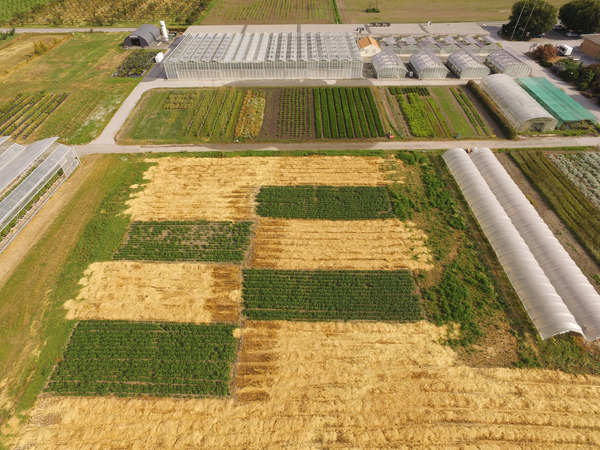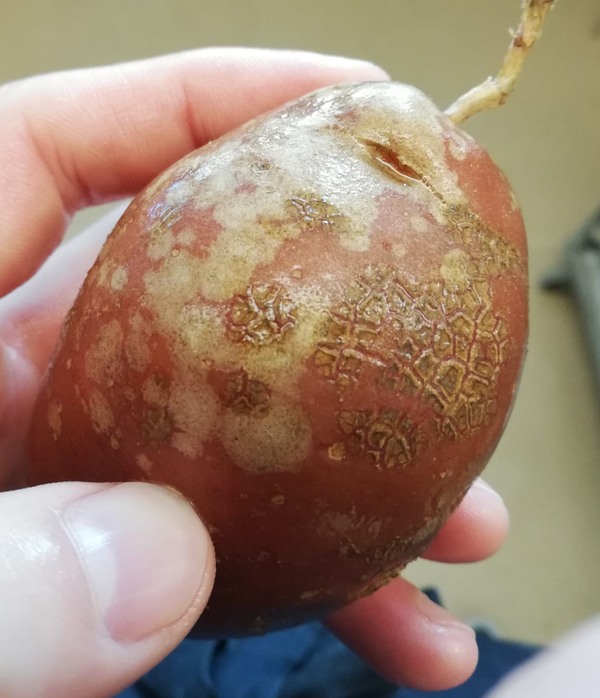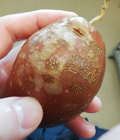The inoculation trial assessed the impact of microbial strains or strain mixtures on potato growth, yield and susceptibility to various stresses. The addition of microbial inoculants did not influence the yield of potato significantly. After creating water stress during crop growth, we monitored leaf conductance to see whether inoculants could improve tolerance to drought events. Unfortunately, this was not the case, as we found that the yield decrease caused by water stress was not mitigated by the inoculation treatments.
However, we noticed after the harvest that certain microbial cocktails reduced symptoms of tuber surface infections with various pathogens, such as Colletotrichum coccodes and/or Helminthosporium solani (silver scurf-associated symptoms) and Streptomyces spp (common scab symptoms). With their natural ability to produce antibiotic compounds, microorganisms such as Pseudomonas brassicacearum 3Re2-7 can confer resistance against these diseases. Moreover, we know that a high percentage of infection with these pathogens can lead to the downgrading of potato lots, causing a dramatic decrease in market value. We think inoculation with microbes can be a natural and effective approach to reduce the financial risks caused by post-harvest potato diseases. This trial was also managed by ÖMKi in Hungary, and they obtained similar results.
The rotation trial tested the impact of pre-cropping with rye or soybean on potato growth, yield and susceptibility to stresses, with a supplementary effort on the associated microbial communities. Our colleagues at ÖMKi, who used an organic approach for conducting the trial, performed this evaluation in Hungary. We are looking forward to combining our results to obtain a complete perspective of these management strategies.
As expected, our 2019 and 2020 results show that nitrogen and water stress affected potato yield. In the plots submitted to water stress during potato growth, we have noticed that pre-cropping with rye limited the yield decrease. On the contrary, the soybean pre-crop reduced the yield loss in nitrogen-depleted blocks.
In addition, our FiBL colleagues took several root, soil and rhizosphere samples during the first two years of the trial. Enzyme activity and functional gene quantification were performed, and characterisation of the microbial communities in these samples is ongoing. This data will not only allow us to associate microbiota and stress conditions but also enable us to monitor how pre-crops affect root, rhizosphere and soil microbial populations and activity.




 tap and then scroll down to the Add to Home Screen command.
tap and then scroll down to the Add to Home Screen command.